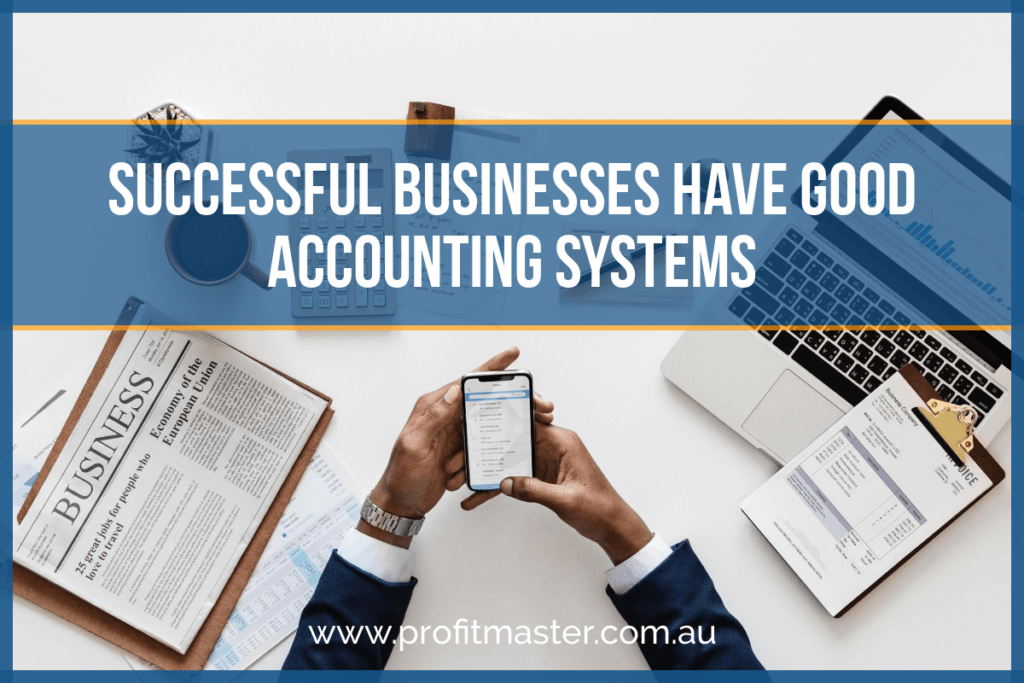Why Every Business Needs a Good Accounting System
A good accounting system is a must for businesses of any size. A company that fails to keep an accurate record of its business transactions is more likely to operate inefficiently and may lose revenue in the long run.
Accounting system helps business owners and managers to accurately measure business growth in terms of profitability as well as identify areas that need attention and improvement.
Many business owners believe that a good accounting system starts and ends with the accounting software adopted for use in the bookkeeping processes of the business.
This overestimates the capability of the accounting software. Like anything, the output is only as good as the people who run it. You might need only one person to manage your accounting system effectively and efficiently.
Thankfully, today we have a wide range of accounting and bookkeeping software options available to help us manage our financial records easily, without the need to manually compute transactions, post on ledgers, and spreadsheets.
Accounting Systems Installation and Implementation
A business can choose from various accounting software systems, including Xero, MYOB, QuickBooks, Reckon, Sage One and Saasu. These accounting software are the most popular in Australia and perfect for small to medium size businesses.
These computerised accounting systems require a certain level of experience, so be sure your accountant had prior knowledge of these accounting tools. Some of these offer free trials that will help you decide which one works best for your business. You can always upgrade if you need more features and functionalities that will streamline your business.
These systems are available in different configurations, such as the traditional desktop installations, while others have already launched their cloud accounting software, similar to the growing business model of most online applications called SAAS (Software as a Service).
Often, management has little understanding of the suitability of accounting packages and as a result, the business uses software installed at the recommendation of the company accountant. This can mean that while the software is quite suitable for the requirements of the external advisor in the preparation of the end-of-year financial statements and tax returns, it is inadequate for the broader requirements of the company itself.
A good accounting system is much more than the accounting software used by the bookkeeper and administration officers processing accounting transactions from day to day, month to month and year-end.
Besides the software, accounting systems include the purchases and creditors system, the sales and accounts receivable system, the payroll system, cash receipts and payments, and the general ledger.
In addition to the input into the accounting software, processes need to be developed from the very commencement of a transaction to its conclusion. For example, a purchase transaction not only has the invoice and payment as its components but also a purchase order, delivery docket, monthly statement and reconciliation, payment requisition and approval documentation.
For the accounting system to be operating correctly, processes need to be developed that describes how the individual components of a transaction are dealt with by the bookkeeper, factory staff, receptionist and whoever else is involved in the administrative process relating to the transaction.
For example, a payment should have evidence of what is being paid-such as an invoice. An invoice should have evidence of its validity-such as a purchase order and delivery docket. To be even more granular, a delivery docket should be signed by an approved company representative as evidence of receipt of goods, and so on.
This process not only provides accuracy for the transaction but also provides a form of internal control giving management a level of comfort that only the right transactions are being processed by the accounting software. Thus, the office staff operating the system need to be trained and competent in using the system and be capable of reporting flaws as and when they occur.
By developing good subsystems of the accounting system, the accounting process conducted via the accounting software produces accurate and informative reports capable of being read by management, the external accountant, the tax agent and other stakeholders such as the bank.
Good Accounting Systems Keeps Track of Every Financial Records
From a management perspective, good accounting systems provide specific details of the financial condition of the company, its operating results, its cash flows and its net worth. This is critically important information used by management to make decisions about the company’s direction.
It is well recognised that failure to keep proper books and records is one of the key factors of business insolvency. Business owners need to keep accurate records of income and expenses and often do not have a developed process or system that allows them to do that. As a result, owners may not know whether they are even making a profit. Even more concerning is that they are unable to identify types of expense or indeed, whether a payment is an expense at all.
In smaller businesses, they tend to rely on the internal bookkeeper as the person who should know the answer to these types of questions. Unfortunately, in many cases, the bookkeeper is underqualified or inexperienced to be able to provide this advice.
In larger companies, this work is overseen by the financial controller or senior accountant. This usually results in better systems, although the cost of operating the system can be considerable compared to alternatives.
Financial Records Must Be Reviewed to Maintain a Good Accounting System
If you are one of those business owners who has not been keeping good financial records, the new year is a great time to start establishing good financial systems for your company. If you have a financial controller or you are concerned about the value of information coming from your systems or the strength of your internal controls, the new year is a great time to review. Good financial systems will not only help your business grow but they also identify problems before they get out of hand.
Does your company have a strategy to develop, adopt and review accounting processes? If you have a financial controller or external accountant, call him/her and arrange a time to sit together and explain your accounting information system. You may be surprised at the information your systems can provide including tax deductions and incentives that you did not know about.
If you are paying too much in accounting fees your accountant may just be able to show you how to reduce them by keeping better records in your accounting system.
Do It Right the First Time, Accuracy Is the Key to A Successful Accounting
Of course, your accounting system is only as good as the information provided in it. It is most important to have accurate data in the form of receipts, delivery dockets, purchase orders, timesheets and the like. Once you have this part of the system right, the data becomes the evidence to confirm the accuracy of what is being entered into the system. This is where good accounting software comes in.
You can avoid errors in calculation with manual accounting as accounting software itself, performs all calculations accurately. Most accounting software these days will give you complete financial statements after uploading all the necessary information.
Stay Ahead of The Competition by Outsourcing Your Accounting Operations
An alternative to engaging an internal bookkeeper is to outsource bookkeeping tasks to a properly qualified provider. Outsourcing bookkeeping is a way of ensuring you have an operator who is competent in providing the bookkeeping service. Outsourced booking can be provided by onshore bookkeepers or offshore bookkeeping providers based in countries like the Philippines.
The advantage of using an onshore bookkeeper is that they can be available to meet with you in person. They are usually more expensive than an offshore bookkeeper.
The advantages of an offshore bookkeeper are not just cost, but also qualification and expertise. Because of the lower cost base of engaging offshore staff such as a Philippines bookkeeper, especially through one of the professional offshoring service providers, is that by adopting a lower cost you also get highly qualified personnel.
For example, accountants and bookkeepers in the Philippines would have completed a university degree as a minimum. In many cases, they are qualified CPAs. Offshore bookkeeping staff engaged through professional outsourcing companies will have had their professional skills and credentials checked before they can start work, and with today’s technology, communications with your offshore staff are virtually seamless.
No matter which way you look at getting your accounting done, it is vitally important that your company has sound accounting information systems. Without them, there is an increased likelihood of underperformance because of a lack of information about which management can make decisions.
Getting the accounting system right gives you confidence that what is being reported is accurate for your requirements.
If you are in need of qualified and proficient Accounting member that is reliable and is adaptable to any accounting system, Profitmaster Global outsourcing will help you reach a more profitable results through decreased cost of staffing. Learn more information about our Accounting and Bookkeeping outsourcing

